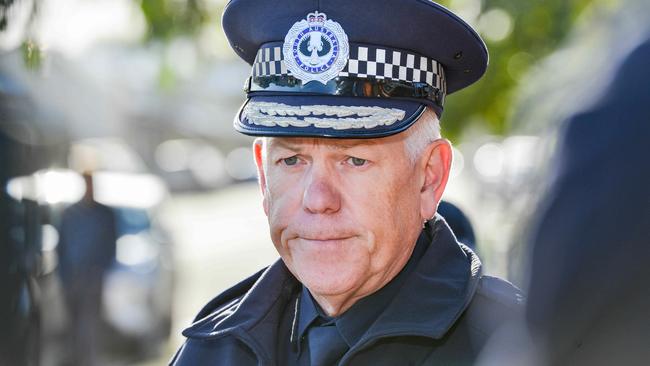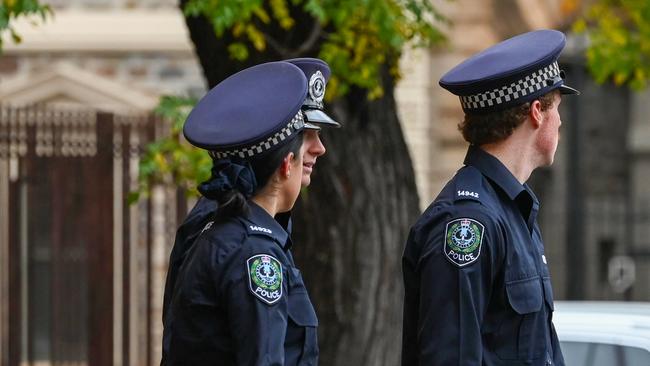SA’s police secrecy laws on officer complaints set to be overhauled as MPs prepare to finish 15-month long inquiry
SA’s police chief Grant Stevens has scored a $100k+ pay rise as draconian police complaints secrecy laws face a huge overhaul to give the public the right to know more about disciplinary action.

Police & Courts
Don't miss out on the headlines from Police & Courts. Followed categories will be added to My News.
South Australia’s “police state” secrecy laws face being overhauled as MPs consider changes to draconian restrictions that are not enforced nationally.
State parliament’s powerful Crime and Public Integrity Policy Committee has conducted an inquiry into SA’s police complaints legislation for 15 months.
The bipartisan committee, comprising government, Opposition and crossbench politicians, is preparing recommendations to change the Police Complaints and Discipline Act.
Having considered evidence from Police Commissioner Grant Stevens, the union representing rank-and-file officers and other officials, the committee will publish a report by year’s end that may include easing restrictions on public information.
The state government will respond next year. Premier Peter Malinauskas is reportedly “open minded to the concept of greater transparency”.
In its submission to the inquiry, The Advertiser called for the secret rules to be repealed as SA was a national “outlier”.

“(The laws) unnecessarily keep information secret and stifle the … public’s right to know about disciplinary activities relating to members of the SA police force – secrecy provisions that are not in place anywhere else in Australia,” it argued.
Under laws created in 2016, all police complaints are subject of blanket secrecy, meaning all details or reference to such inquiries are banned from publication.
Permission must be sought from Mr Stevens, who was recently awarded a $101,222 pay risefor a new five-year contract to a $647,241 salary, Independent Commissioner Against Corruption Ann Vanstone or the Office for Public Integrity.
An independent review, which retired District Court judge Gordon Barrett oversaw, urged more information on proven cases of misconduct be provided to the public.
Latest available figures show police receive more than 2400 complaints, on average, a year, of which a third are investigated.
SA Police has a secret Internal Investigation Section, which refers serious cases to another secret Police Disciplinary Tribunal, which refers its findings to Mr Stevens to determine discipline outcomes. Extreme matters are referred to ICAC.
Former police ombudsman Michael Grant called for the tribunal’s “closed shop” to be opened up to scrutiny. Tribunal president, serving magistrate Simon Smart, supported his calls.
Mr Stevens said any potential changes were a matter for parliament but he believes confidentiality provisions “strikes the right balance”.

Appropriate details are published annually, he said, adding he has proven he will approve disclosures of public interest but any “trigger” of confidentiality is not made with a media inquiry.
“To reiterate, the (law) deals with matters of misconduct which equates to a breach of organisational standards and policy,” he said.
“Ordinarily, PCDA matters are not made public, however in some circumstances it may be in the public interest to provide information on such matters, which (SA Police) has demonstrated in the past.”
Committee chairman, Labor Upper House MP Justin Hanson, said the report would consider all evidence in its recommendations.
Attorney-General Kyam Maher will outline the government’s response next year.
“(It) is an important piece of legislation, and any amendments must be carefully thought through,” he said.
The Police Association has said there was “no reason” to change.





